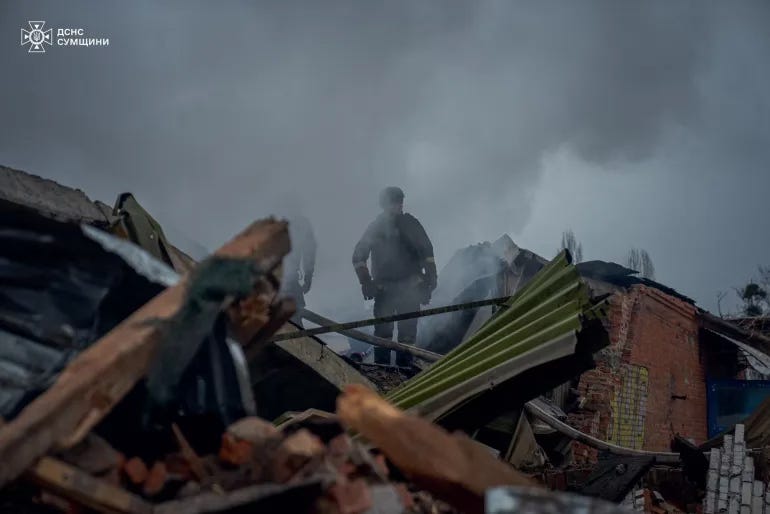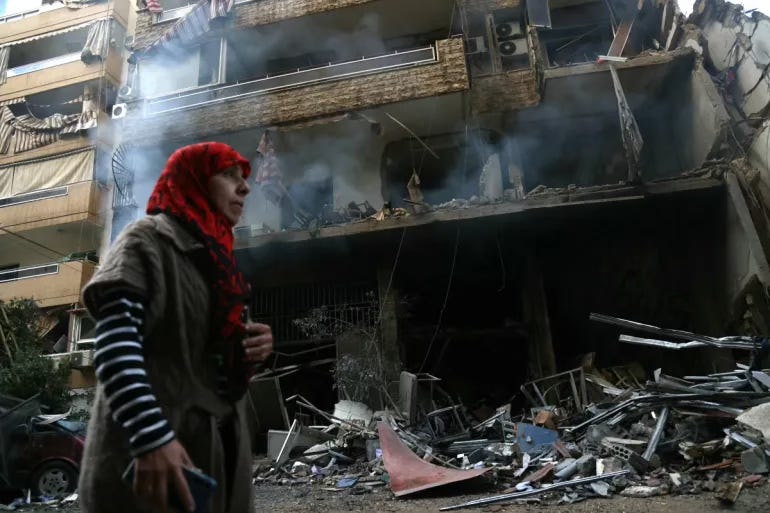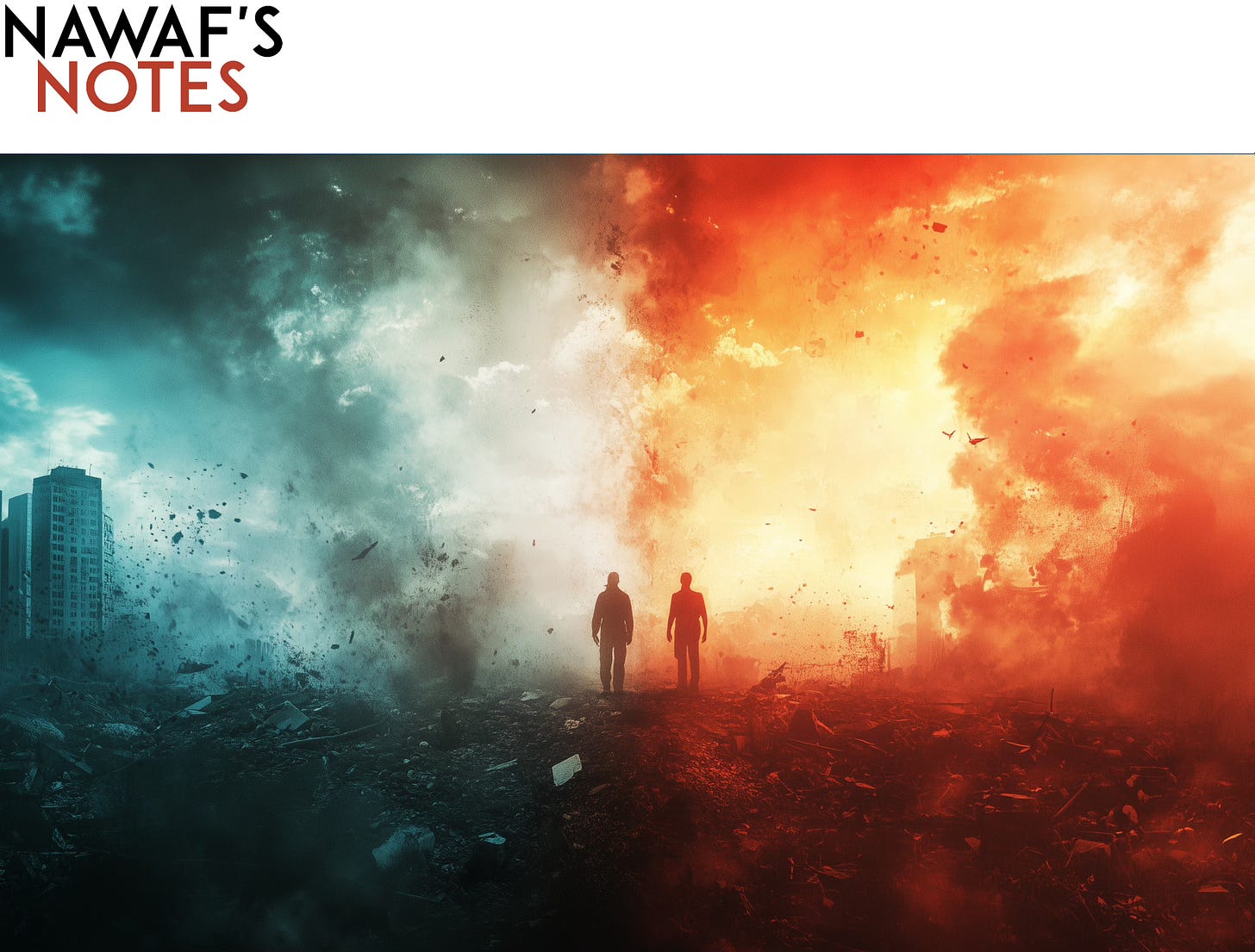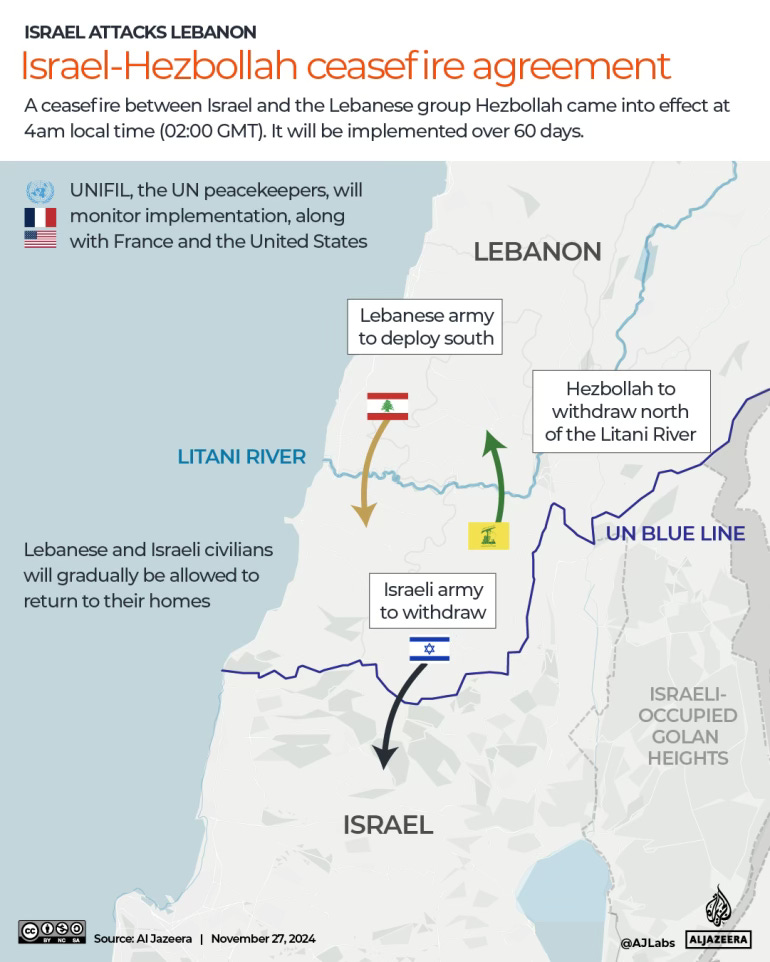Pause or Peace?
Winter slows the conflicts in Lebanon and Ukraine, but will it cool the flames—or merely fuel the next cycle of violence?
The following is based on the author's original Arabic article published in Qatar’s Al-Raya Newspaper on November 27, 2024, 1…
As winter settles over the war-torn landscapes of Lebanon and Ukraine, the natural slowing of ground operations may seem like an opportunity—a brief pause to “cool down” the flames of conflict. But history warns us not to mistake a lull for peace. Wars don’t end when the weather turns cold; they hibernate, waiting for the thaw to reignite. And this winter, the question looms: Are we witnessing the groundwork for peace or the prelude to renewed devastation?

In Ukraine, there’s little indication that the frost will bring diplomacy. Russia’s deployment of hypersonic missiles is not just a tactical escalation; it’s a bold signal to both Kyiv and the West. These strikes, capable of evading modern defense systems, don’t merely destroy—they demoralize. Ukraine’s leadership remains defiant, but President Zelensky’s appeals for international support increasingly feel like cries into the void. The West, while outwardly committed to Ukraine’s defense, appears unwilling to risk further escalation with Russia. As NATO calculates its steps carefully, Moscow seems intent on cementing its advantage before any meaningful negotiations can take place. Winter may slow troop movements, but it won’t freeze Russia’s ambitions—or the West’s hesitations.

Meanwhile, in Lebanon — and even with this “new” cease-fire in place, the recent surge in violence signals the Middle East’s perennial fragility. Hezbollah’s massive rocket barrage against Israel—one of the most intense in months—provoked an unrelenting Israeli response, with airstrikes cutting deep into Beirut. This exchange is more than the usual tit-for-tat; it underscores the region’s simmering volatility. Civilians bear the brunt as sectarian divides deepen, and fragile states like Lebanon teeter further toward collapse. And yet, the international community seems paralyzed, content to issue statements while the region inches closer to catastrophe.
Layered onto these crises is the shifting political landscape in Washington. A new U.S. administration will soon face the choice of whether to push for substantive peace talks or allow these conflicts to fester until spring’s offensives erupt. The temptation to delay—under the guise of careful deliberation—has often been the hallmark of American foreign policy. But delays, in this case, may come at a steep cost.
Final Note …
True peace cannot emerge from pauses dictated by weather or political convenience. It requires bold, uncomfortable decisions and a willingness to confront hard truths. Are global leaders prepared to act? Or will this winter simply lull us into complacency, ensuring the storms of spring will be fiercer than ever? Time, as always, is running out.







